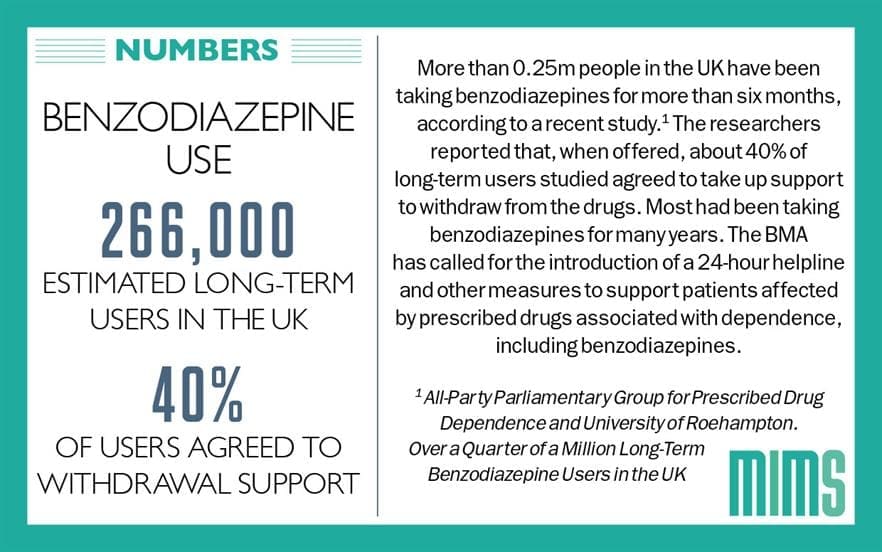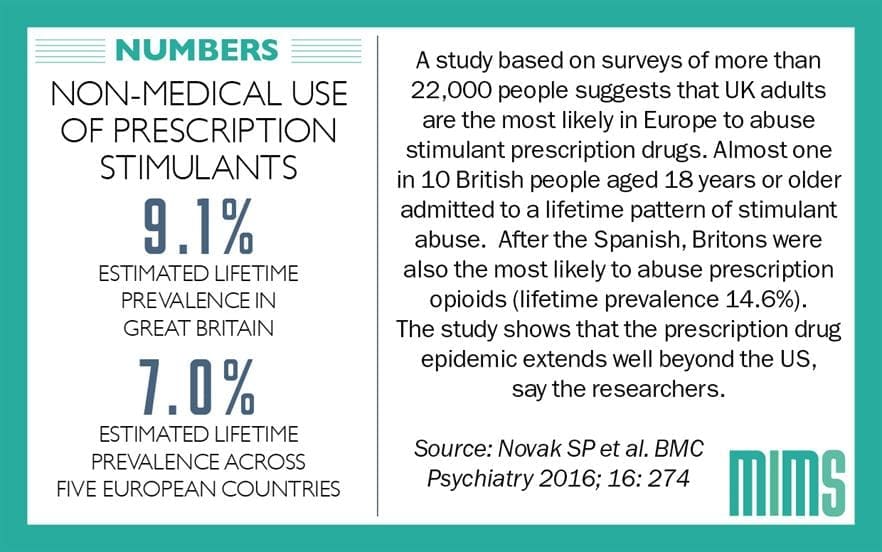The signs and symptoms of prescription drug abuse and addiction can vary from person to person, dependent on the type of prescription drug and its individual effects.
To the untrained eye prescription drug abuse and addiction can be very hard to spot. This is due to the fact that there is no stereo typical prescription drug addict. Any one who takes prescription drugs with addictive properties is at risk of abuse and addiction.

Here at Delamere we are very familiar with prescription drug addiction and abuse in all of its forms. We offer a full medical detox and bespoke rehabilitation programme for anyone suffering from a problem with prescription drugs.
Our elite team of addiction treatment professionals deliver a number of evidence based addiction treatments to enable our patients to STOP their addiction to prescription drugs safely, START to change addictive patterns and behaviours by healing the past and showing them a healthier way of living, and GROW beyond addiction by empowering our patients and supporting them each and every single step of the way.
Physical and psychological signs and symptoms
If someone you love or care for is addicted to prescription drugs, they will display a number of signs and symptoms that are generic to all prescription drugs. These symptoms will be very similar whether the person is a teenager or an adult, or taking a stimulant or depressant prescribed drug.
Physical signs and symptoms of prescription drug addiction include:
- Withdrawal symptoms when they run out of the prescription drug – Prescription drug withdrawal symptoms vary depending on the type of drug, frequency of administration and duration of addiction and dosage. Displaying withdrawal symptoms indicates prescription drug dependence.
- Compulsive drug seeking and taking – Even when the individual wants to stop taking the prescribed drug they are compelled to keep taking it.
- Change in sleep patterns – They may sleep more or less than usual, or at different times (ie throughout the day or be awake all night).
- Change in appetite and weight – Prescription drugs may increase or suppress appetite. When abused changes in appetite and weight become more apparent.
- Mixing prescription drugs with alcohol or other drugs – Those who are addicted to prescription drugs will naturally seek to get high. If they become tolerant to a prescribed drug, they may start to drink alcohol, take other drugs or medication to increase euphoric effects.
- Taking increasing amounts of prescription drugs – Prescription drug addiction causes the individual to become tolerant to the effects they initially gained from taking the drug. They are therefore likely to keep increasing the amount of the prescribed drug that they take or change to a more powerful one; with or without their prescribers knowledge.
- Change in appearance – Someone addicted to prescription drugs is likely to take less of an interest in their personal hygiene and appearance.
- Frequent intoxication – Those that are addicted to prescription drugs will have little control around their usage. This results in frequent intoxication. Dependent on the drug, prescription drug intoxication may present as very drowsy, difficulty in staying awake, slurred or slowed speech and difficult to engage with, OR full of energy, confident and unusually chatty.
- Suffering negative consequences as a direct result of their prescription drug taking – A strong characteristic of drug addiction is the continuation to take drugs despite negative consequences. This may include: accidental overdose, break down of a relationship, breaking the law, financial difficulties, consequences at work, physical and mental health problems, social and family problems.
- Prioritising taking prescription drugs – An individual who is addicted to prescription drugs will prioritise their prescription drug taking over everything else. This includes basic nutritional needs, work, family, finances, friends, social life and quality of life.
Psychological signs and symptoms of prescription drug addiction include:
- Increased anxiety
- Depression
- Changes in mood (fluctuating from high to low in mood)
- Confusion
- Being secretive and dishonest
- Impaired memory and inability to focus or concentrate
- Hostility and/or aggression when challenged over prescription drug taking
- Drug cravings
- Drug seeking behaviour and manipulation
- Loss of interest in things they used to enjoy
- Paranoia
- Psychosis
- Suicidal ideation, self harm thoughts or tendencies
- Decline in mental health

Signs and symptoms of prescription drug abuse
Prescription drug abuse is when an individual misuses a prescription drug to get ‘high’.
In our vast experience of treating addiction and its co occurring illnesses at Delamere, abuse can very easily lead to addiction with increased frequency of abuse.
Physical signs and symptoms of prescription drug abuse include:
If you are worried a family member or loved one suffers from prescription drug addiction, look for the following signs and symptoms:
- Intoxication – Depending on the drug, prescription drug intoxication may make them very drowsy, have difficulty in staying awake, slurred or slowed speech and difficult to engage with, OR full of energy, confident and unusually chatty.
- Mixing prescription drugs with alcohol, medications or other drugs – Those that abuse prescription drugs will be aiming to get ‘high’. They may achieve the high they are seeking by combing prescriptions drugs with alcohol or other drugs.
- Taking more of the drug than they are prescribed.
- Taking prescription drugs that do not belong to them – Sourcing prescription drugs from the internet, family, friends or a street dealer.
- Binging on prescription drugs – Abuse of drugs includes binging on them. The individual may save up prescription drugs so that they can take them all in one go or over a short period of time.
- Changes in weight and appearance – Abusing prescription drugs can lead to weight loss/gain and loss of interest in appearance.
- Changing the route of administration – One form of prescription drug abuse is to change the route of administration other than prescribed. This may include crushing and snorting tablets or injecting an oral solution.
Psychological signs and symptoms of prescription drug abuse include:
- Severe mood swings – Following on from abusing prescription drugs there will be a comedown period. The individual may appear agitated, anxious, panicky, paranoid and depressed.
- Changes in character and behaviour – An individual who abuses prescription drugs may act out of character and behave impulsively with little or no thought to possible consequences.
- Changes in social interaction – Someone who is abusing prescription drugs may start to socialise with a different circle of friends or adversely isolate on their own.
- Loss of interest in things they used to enjoy – This may include hobbies and time spent with family and friends.
- Suffer consequences as a direct result of prescription drug abuse – They may start to fall behind at school or suffer consequences at work, physically or mentally, or have problems within their family and social environment.
 Detox safely in our medical facility
Detox safely in our medical facility
 Free collection
Free collection
service
 Future-proof
Future-proof
Aftercare
The long term effects of prescription drug abuse and addiction
Prescription drug abuse and addiction, if left untreated, invariably nearly always gets progressively worse. The longer and more severe the abuse and addiction lasts for, the more severe the long term effects.
Long term effects of prescription drug misuse are the same as any kind of substance misuse. Even when the addiction relates to a genuine prescription, the long term effects can be devastatingly destructive.
Make no mistake, prescription drug addiction can affect all areas of your life. The long term effects include:
- Physical and mental health problems that are not resolved by stopping the prescription drugs
- Distrust and suspicion from family and friends
- Breakdown of once meaningful relationships
- Financial hardship and debt
- Job loss or inability to work
- Long lasting social implications
- Legal issues, including arrests, DUI’s, loss of driving licence, fines, imprisonment and a criminal record.
Treatment for prescription drug abuse and addiction
The earlier a prescription drug addiction is treated the better. The longer it is left the more complex the consequences and the more ingrained the behaviours associated with prescription drug abuse and addiction become.
Left untreated, prescription drug abuse and addiction is a life threatening condition. You or your loved one could die at any time from abusing prescription drugs.
The good news is that prescription drug abuse and addiction is treatable. The cycle of addiction can be broken and once treated recovery can be maintained.
For more information on how we at Delamere can help you or a family member to recover from prescription drug addiction and live an addiction free life, call and speak to one of our addiction experts now.

Call Us: 0330 111 2015




 Detox safely in our medical facility
Detox safely in our medical facility
 Free collection
Free collection Future-proof
Future-proof